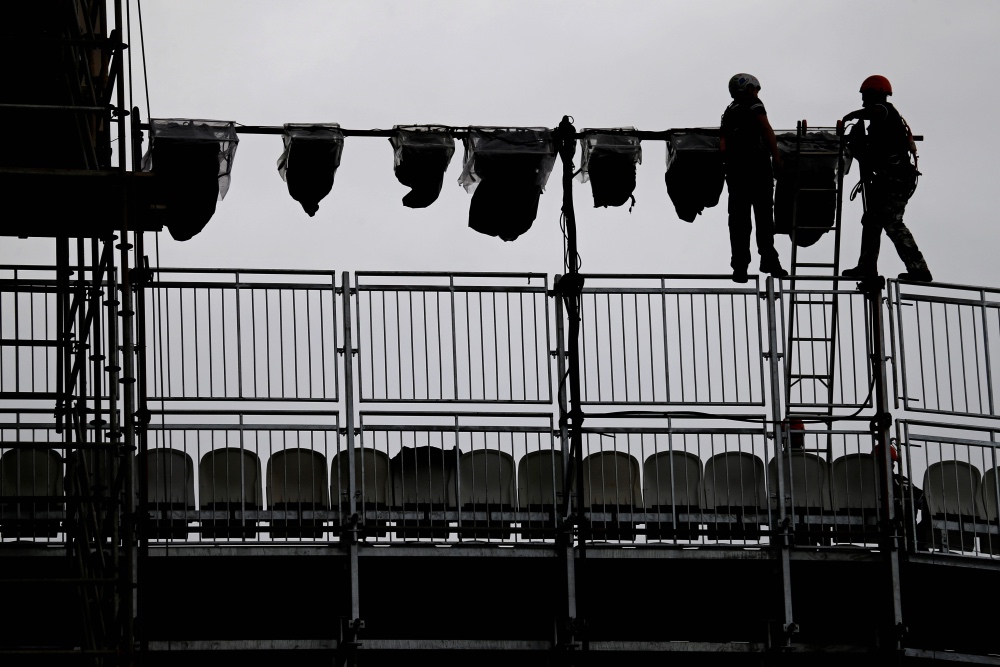Mexico City, Mexico
Thomson Reuters Foundation
Brazil found 40 per cent fewer people in slave-like working conditions in 2019 than the year before despite getting more complaints, officials said on Tuesday, as anti-slavery efforts face funding gaps and increasingly sophisticated traffickers.
The Labor Inspection Secretariat said 1,054 workers had been discovered in slave-like conditions, compared with 1,745 found in 2018.
Yet the number of complaints of slave-like conditions increased to 1,213 from 1,127 in 2018, according to the Labor Prosecutor’s Office, a separate government department.

Workers are pictured at the construction site of the beach volleyball venue for 2016 Rio Olympics on Copacabana beach in Rio de Janeiro, Brazil, on 28th July, 2016. PICTURE: Reuters/Sergio Moraes
Labour inspectors play a vital role in finding victims of trafficking and modern day slavery, but officials in Brazil have said their forces are in a “calamitous” state due to underfunding and understaffing.
“The Division of Inspection for the Eradication of Slave Labor has serious budget restrictions with a very drastic reduction in personnel,” said Lys Sobral Cardoso, Brazil’s leading anti-slavery labour prosecutor.
“There is an enormous deficit with the number of labour inspectors,” she told the Thomson Reuters Foundation.
Inspectors in Brazil investigated 267 businesses in 2019, up from 252 inspections the previous year.
Globally, the International Labor Organization estimates that 16 million people are in forced labour exploitation in industries such as construction, agriculture and domestic work.
In Brazil, slavery is defined as forced labour but also covers debt bondage, degrading work conditions, long hours that pose a risk to health and any work that violates human dignity.
Cases in Brazil are becoming more spread out among different workplaces, which could help explain why fewer workers were found by inspectors, Sobral Cardoso said.
“The fragmentation of companies, the outsourcing on a large scale make it difficult to locate workers who are no longer concentrated in larger establishments,” Sobral Cardoso said.
Companies violating the law are becoming better at eluding inspectors, officials also said.
“They know how to hide, and they are increasingly difficult to find,” said Matheus Alves Viana, interim head of the Division of Inspection for the Eradication of Slave Labor, at a news conference in Brasilia.
The Labor Prosecutor’s Office said it has 1,700 open cases involving slave-like working conditions.
Between 2003 and 2018, about 45,000 people were found in slave-like conditions in Brazil, the Secretariat said.
Most were men ages 18 to 24, and almost a third were illiterate, and many hailed from communities with little state infrastructure and few public services, said Alves Viana.
Brazil was ranked Tier 2 by the US State Department’s Trafficking in Persons Report, meaning it did not meet minimum standards for ending human trafficking but was making significant efforts to do so.
Tuesday was the National Day to Combat Slave Labor in Brazil, created to honour three labour inspectors and a driver murdered in 2004 in Unai, in the southeastern state of Minais Gerais, while investigating allegations of slave labor.






